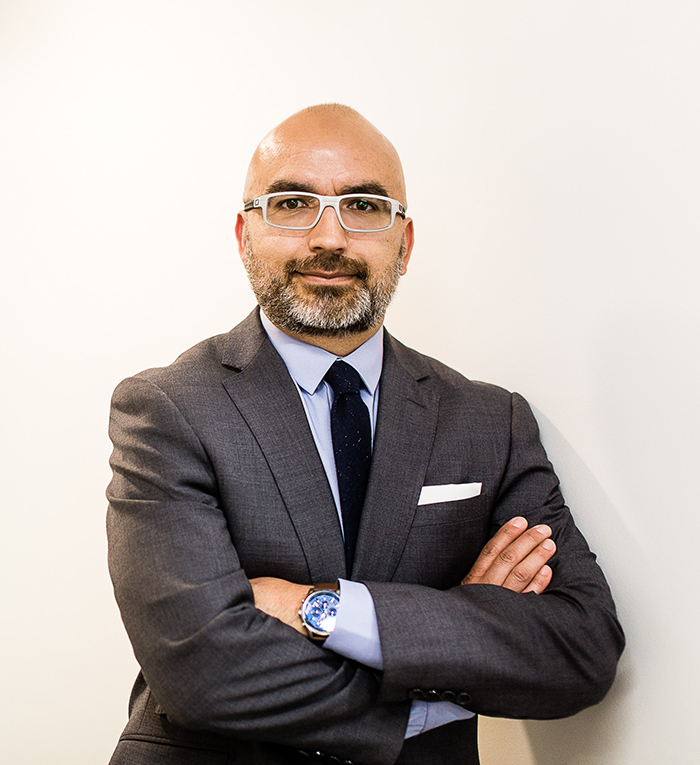AP Perspectives: Create Intentional, Systemic Change

I have fond memories of my grandfather serving as an usher at our local Catholic Church. He appeared so distinguished in his suit and tie as he smiled and greeted the parishioners entering the church.
He took his ushering responsibilities graciously as he passed around the collection basket at each pew. I held the greatest admiration for my grandfather because he showed me how a simple gesture of a smile can make people feel welcome. The opportunity to observe him serving others with humility and respect and demonstrating a steadfast work ethic was one of the greatest gifts that I have received in my life.
My grandfather was always mindful that I was observing him, and I believe he wanted me to witness how he responded to some of the challenges he faced, especially when I witnessed him experiencing racial slurs firsthand.
So how do these experiences shape me? As I approach my 20-year career as a philanthropy professional, I often reflect upon the positive and negative experiences that I have had. Through these reflections, I honor my grandfather’s legacy. My personal, academic, community and professional interactions with others have contributed to my inclusive leadership style and appreciative approach. These influences have had a monumental impact on me personally and have contributed to my desire to encourage the next generation of leaders.
Without knowing, the beginning of my development career began in the mid-1990s as a college student by volunteering through my fraternity to support activities such as the American Cancer Society’s Relay for Life, as a participant on a college panel to promote higher education to local high school students, and the invitation to serve as a student leader representative on the university’s core interview panel for the vice president of university advancement candidates, among many others.
As president of a multicultural fraternity, I sought networking opportunities with other organizations and community leaders and communicated with college leadership. These experiences, coupled with mentors who supported me during and after college, helped open doors to fund development opportunities. My mentors included college advisers, donors, supervisors and colleagues.
A Call to Action
To develop Latinx leadership in the philanthropic sector will require intentional commitment from various industry sectors, including nonprofit organizations, associations and grantmakers to invest financially to create and cultivate a pipeline of emerging and existing Latinx leaders. It is important to emphasize our collective humanity, values and goals toward addressing human challenges and strengthening civil society. Additionally, leaders must be intentional to develop, employ and embrace equitable strategies that encourage and invite Black, Indigenous, and people of color to the decision-making table and provide the support and resources to ensure talent is retained.
We need to ask the difficult questions about the legacy we are building for future generations and to implement intentional systemic change.
For individuals interested in pursuing a career in philanthropy, I highly recommend that emerging and seasoned fundraisers become members of their local Associated Fundraising Professionals (AFP) chapter and participate in many of its offerings, including networking, leadership opportunities, mentoring and best practice education. Local AFP chapters information can be found on the AFP website, https://afpglobal.org/chapters.
I am very grateful to have had the experience to have participated in Hispanics in Philanthropy’s first cohort of Next Generation Latino Philanthropy Leadership Program. HIP’s mission is to strengthen Latinx leadership, influence and equity by leveraging philanthropic resources, and doing so with an unwavering vision on social justice and shared prosperity across the Americas.
Renamed, the HIP Líderes Fellowship, is a 10-month program that helps mid-career Latinx professionals who work in philanthropy and nonprofits secure opportunities to network and gain access to resources and support systems to help them advance and thrive in the philanthropic sector.
Latinx fundraisers can learn more about Hispanics in Philanthropy by visiting their website.


 Victor Mitre has worked in the philanthropic sector for over 20 years. He is currently the executive director for stewardship and development for the Archdiocese of Seattle where he is part of the archbishop’s leadership team and is responsible for the leading the recently developed Catholic Community Foundation of the Archdiocese of Seattle and archdiocesan-wide initiatives. Mitre is a Chartered Advisor in Philanthropy (CAP) and previously held the Certified FundRaising Executive (CFRE) and is pursuing a Ph.D. in organizational leadership and change. Mitre serves on the Association of Fundraising Professionals’ national committee task force for inclusion, diversity, equity and access (IDEA).
Victor Mitre has worked in the philanthropic sector for over 20 years. He is currently the executive director for stewardship and development for the Archdiocese of Seattle where he is part of the archbishop’s leadership team and is responsible for the leading the recently developed Catholic Community Foundation of the Archdiocese of Seattle and archdiocesan-wide initiatives. Mitre is a Chartered Advisor in Philanthropy (CAP) and previously held the Certified FundRaising Executive (CFRE) and is pursuing a Ph.D. in organizational leadership and change. Mitre serves on the Association of Fundraising Professionals’ national committee task force for inclusion, diversity, equity and access (IDEA). 
